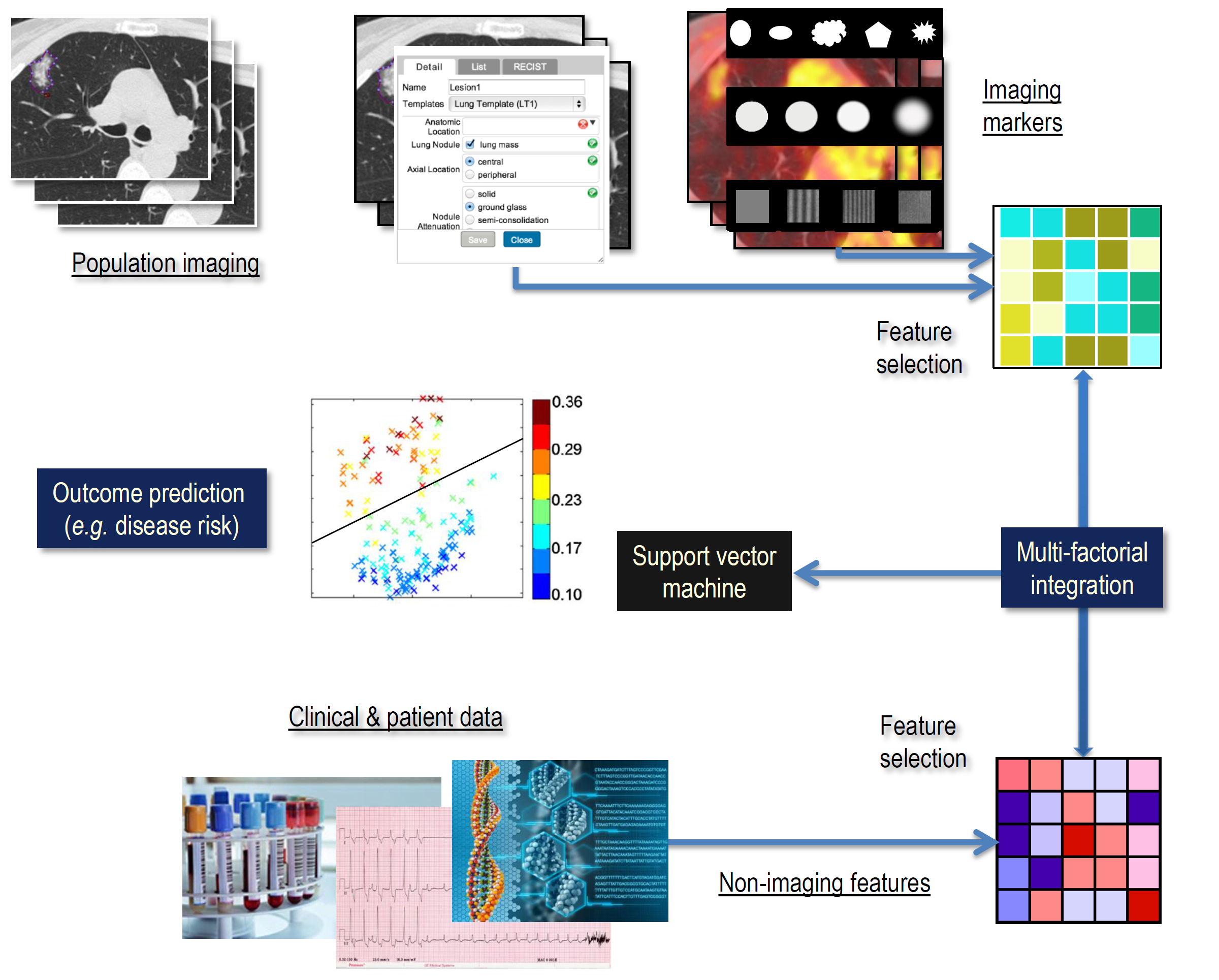Machine learning
Our research area focuses on the development and application of advanced machine learning techniques for the analysis, integration and exploitation of multi-source biomedical data in the context of personalised medicine.
Machine learning describes a set of computational and statistical methods that can make computers learn to perform tasks based on existing data. These include dimensionality reduction (e.g. manifold learning), multivariate regression (e.g. PLS), classification approaches (e.g. SVM), and more advanced techniques (deep learning).
The personalised medicine tasks that are of particular relevance include computer-aided diagnosis, risk and prognosis estimation, as well as treatment planning. The biomedical data of interest can be from different sources, including imaging, clinical, demographics, lifestyle, and environmental data.

Here are some examples of machine learning applications in our lab:
- Analysis of nonstandardized stress echocardiography sequences using multiview dimensionality reduction (Nogueira et al, Medical Image Analysis 2019)
- Integration cardiac structure and function with clinical parameters to phenogroup heart failure patients and predict response to cardiac resynchronization therapy (Cikes et al, European Journal Heart Failure 2019)
- Deep learning for pulmonary nodule malignancy assessment (Rafael-Palou et al, Computer Methods and Programs in Biomedicine 2020)
- Decision tree learning for uncertain clinical measurements (Nunes et al, IEEE Transactions on Knowledge and Data Engineering)
- Deep learning for fetal surgery planning (Torrens-Barrena et al, IEEE Transactions on Medical Imaging 2020)
